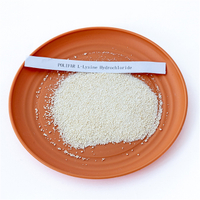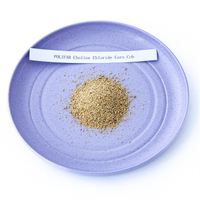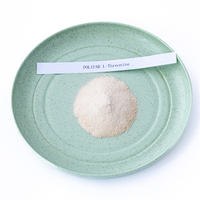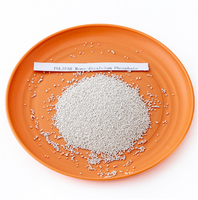Views: 0 Author: Site Editor Publish Time: 2024-07-27 Origin: Site








In the realm of food processing, the use of food-grade coagulants plays a crucial role in achieving desired textures and properties in various food products. This blog explores the types, applications, benefits, safety considerations, and environmental aspects of food-grade coagulants.
Food-grade coagulants are essential substances used in the food processing industry to alter the physical properties of food by causing proteins to coagulate, or clump together. This coagulation process is crucial for creating a wide range of food products with desirable textures, consistencies, and structural integrity.
Coagulants work by altering the charge and solubility of proteins in food, causing them to aggregate and form a solid or semi-solid mass. This process is essential in the production of various dairy products, soy-based foods, meat products, and even certain beverages.
Animal-Derived Coagulants:
Rennet: This is an enzyme complex derived from the stomachs of ruminant animals, such as calves. It is traditionally used in cheese-making to coagulate milk proteins, forming curds and whey.
Pepsin: An enzyme derived from the stomachs of animals, pepsin is sometimes used in combination with rennet for cheese production.
Plant-Derived Coagulants:
Microbial Enzymes: These are produced through the fermentation of microorganisms and are commonly used in the production of vegetarian and vegan cheeses. Examples include enzymes derived from fungi and bacteria.
Vegetable Rennet: Extracted from plants such as thistle and fig leaves, vegetable rennet is a popular alternative to animal-derived rennet, especially in vegetarian and vegan food products.
Synthetic Coagulants:
 |  |
Calcium Chloride: This is widely used in dairy and tofu production to firm curds and improve texture. It helps in adjusting the calcium content of the milk, facilitating better coagulation.
Citric Acid: Often used in cheese-making, citric acid helps in adjusting the acidity of milk, which aids in the coagulation process.
Propylene Glycol E1520: Used in certain food products to improve texture and stability, this synthetic coagulant is also known for its role as a humectant.
Calcium Sulfate: Particularly used in tofu production, calcium sulfate helps in forming the desired curd structure, providing a firm texture to the final product.
These coagulants are carefully selected based on their ability to interact with specific food components under controlled conditions, ensuring the desired outcome in the final product. Each type of coagulant has unique properties and applications, making them versatile tools in the food processing industry.
Understanding the different types of food-grade coagulants and their specific applications is essential for food manufacturers and processors aiming to produce high-quality, consistent, and safe food products.
Food-grade coagulants play a pivotal role in various sectors of the food industry, helping to create the desired textures, consistencies, and structural integrity in many popular food products. Here are some key applications of food-grade coagulants:
Dairy Products
Cheese: Coagulants like rennet and calcium chloride are essential in cheese-making. They cause the milk proteins (casein) to coagulate, forming curds. The curds are then processed and aged to create different types of cheese, from soft cheeses like Brie to hard cheeses like Cheddar.
Yogurt: Coagulants help in thickening yogurt by causing the milk proteins to coagulate. This process is often aided by bacterial cultures that ferment the lactose in milk to produce lactic acid, which helps in protein coagulation.
Tofu and Soy Products
Tofu: Coagulants such as calcium sulfate and magnesium chloride (nigari) are used to coagulate soy milk, forming curds that are then pressed into blocks to make tofu. The type of coagulant used can affect the texture and firmness of the tofu.
Soy-Based Cheeses: Similar to dairy cheese, soy-based cheeses use coagulants to achieve the desired texture and consistency. Plant-derived and synthetic coagulants are commonly used in these products to cater to vegetarian and vegan consumers.
Meat Processing
Processed Meats: Coagulants like calcium chloride and phosphates are used in the production of processed meats (e.g., sausages, hams) to improve texture, water retention, and binding of the meat proteins. This helps in creating a uniform product with a desirable texture.
Meat Analogues: In the production of plant-based meat alternatives, coagulants play a crucial role in binding plant proteins and creating a meat-like texture.
Beverage Clarification
Fruit Juice Clarification: Coagulants are used to remove suspended particles in fruit juices, resulting in a clear, visually appealing product. For example, enzymes and synthetic coagulants can help in the clarification process by coagulating the particles, making them easier to filter out.
Wine and Beer: Coagulants like isinglass and bentonite are used in the clarification of wines and beers. These substances help in settling out yeast and other particles, leading to a clearer beverage.
Bakery and Confectionery
Gels and Gummies: In confectionery products such as gels and gummies, coagulants like gelatin and pectin are used to achieve the desired gel-like consistency. These coagulants interact with sugars and other ingredients to form stable, chewy textures.
Bread and Pastry: Certain coagulants can improve the texture and stability of bread and pastry doughs, ensuring a consistent product with good volume and crumb structure.
Food-grade coagulants are indispensable in these applications, allowing food producers to create products with the specific textures and qualities that consumers expect. Their versatile use across different food sectors highlights their importance in modern food processing.
Food-grade coagulants offer numerous advantages in food processing, contributing to the production of high-quality food products with desirable textures, consistency, and safety. Here are some key benefits of using food-grade coagulants:
Texture Enhancement
Improved Mouthfeel: Coagulants help achieve the desired texture and mouthfeel in various food products. For example, they give cheese its firmness, yogurt its creaminess, and tofu its smooth consistency.
Consistency: They ensure uniform texture throughout the product, which is crucial for consumer satisfaction and product quality.
Shelf-Life Extension
Stability: Coagulants improve the stability of food products, preventing separation and maintaining consistency over time. This is particularly important in dairy and soy products.
Preservation: By aiding in the removal of excess moisture and maintaining the integrity of food products, coagulants can help extend shelf life, reducing spoilage and waste.
Improved Yield
Efficiency: Coagulants increase the efficiency of protein extraction and utilization in food processing, leading to higher yields. This is particularly beneficial in cheese and tofu production.
Cost-Effectiveness: Higher yields translate to better resource utilization and cost savings for food manufacturers.
Enhanced Nutritional Profile
Mineral Content: Some coagulants, such as calcium chloride and calcium sulfate, add essential minerals like calcium to the food product, enhancing its nutritional value.
Protein Preservation: Coagulants help in preserving the protein content of food products, ensuring they remain a good source of nutrition.
Versatility
Wide Range of Applications: Coagulants can be used in various food products, from dairy and soy products to meat analogues, beverages, and confectionery. Their versatility makes them valuable in multiple food processing sectors.
Adaptability: Different types of coagulants can be selected based on specific food processing needs and consumer preferences, including vegetarian and vegan options.
Quality Improvement
Aesthetic Appeal: Coagulants contribute to the visual appeal of food products by improving their clarity, consistency, and color. This is particularly important in beverages like fruit juices, wine, and beer.
Flavor Retention: Proper coagulation ensures that the flavor profiles of food products are maintained or enhanced, providing a better overall taste experience for consumers.
Safety and Compliance
Regulatory Standards: Food-grade coagulants meet stringent safety and regulatory standards, ensuring they are safe for consumption. This compliance is crucial for maintaining consumer trust and meeting industry requirements.
Reduced Contaminants: Coagulants can help in the removal of unwanted particles and impurities from food products, enhancing their safety and quality.
Environmental Sustainability
Reduced Waste: By improving yield and extending shelf life, coagulants help reduce food waste, contributing to more sustainable food production practices.
Eco-Friendly Options: Advances in coagulant technology are leading to the development of more environmentally friendly coagulants, reducing the ecological footprint of food processing.
In summary, food-grade coagulants are essential in modern food processing, affecting the texture, taste and shelf life of a wide range of foods. For reliable food-grade additives, consider working with Polifar, as we are committed to providing food additives that meet strict safety and regulatory standards, including high-quality coagulants. To explore more food additives, visit Polifar's website at www.polifar.com.






